Social-Political Issues
 |
 |
 |
 |
 |
 |
 |
Council for Inclusive Capitalism - I
An In-Depth Look at this ‘Novelty’
“The utopia toward which the Revolution is leading us is a world whose countries, united in a universal republic, are but geographic designations, a world with neither social nor economic inequalities, run by science and technology, by media and psychology, in order to attain, without the supernatural, the definitive happiness of man.” (1)
These words are by Prof. Plinio Corrêa de Oliveira, published in 1959 – over 60 years ago; yet they are still relevant when considering the Vatican’s latest and perhaps most important global, pan-religious & socio-economic initiative to date: the Council for Inclusive Capitalism.
In November 2019, a mere month before Covid broke out of the laboratory in Wuhan and the world and the Church were subjected to Hygiene Socialism, Pope Francis met with the Council for Inclusive Capitalism, a global coalition of multi-national corporations whose goal is to implement “Inclusive Capitalism.”
The group was officially launched on December 8, 2020 under the auspices of Pope Francis. Upon welcoming this group, Francis has taken on the role of “chaplain,” with the assistance of Card. Peter Turkson, Prefect of the Vatican’s Dicastery for Promoting Integral Human Development.
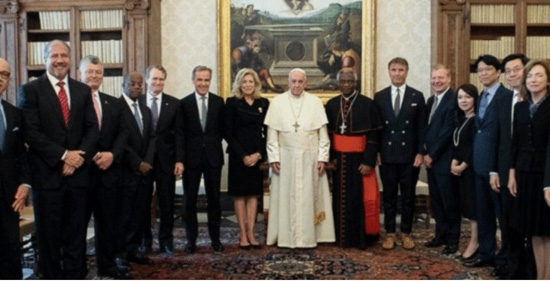 For Pope Francis, this Council addresses the “need” for “an economic system that is fair, trustworthy and capable of addressing the most profound challenges facing humanity and our planet” (his words to the Council at the November 2019 address
here, paragraph 3). The Council is presented as a fitting application of the “Economy of Francis,” which is “an economy that is inclusive and not exclusive, humane and not dehumanizing, one that cares for the environment and does not despoil it [emphasis added].” (Source
here)
For Pope Francis, this Council addresses the “need” for “an economic system that is fair, trustworthy and capable of addressing the most profound challenges facing humanity and our planet” (his words to the Council at the November 2019 address
here, paragraph 3). The Council is presented as a fitting application of the “Economy of Francis,” which is “an economy that is inclusive and not exclusive, humane and not dehumanizing, one that cares for the environment and does not despoil it [emphasis added].” (Source
here)
This series is meant to show why this Council is important and why Catholics should be extremely concerned that the Vatican is blessing this initiative, one that seems to have gone mostly unnoticed. The series will give an in-depth look at the Council: its background, its founding principles and how they conflict with Catholic doctrine, as well as its terminology, goals and means of achieving them, and its latest activity.
This first article will give some background on the Council, the revolutionary philosophy behind it and demonstrate how it is incompatible with the Faith.
The Council, led by Lynn Rothschild
The Council was founded by Lady Lynn Forester de Rothschild, wife of Sir Evelyn Robert de Rothschild (both on their third marriage). Lynn Rothschild is an American investor and head of several multi-national companies. She is also a member of the American Masonic Council on Foreign Relations, which publishes the important magazine called Foreign Affairs.
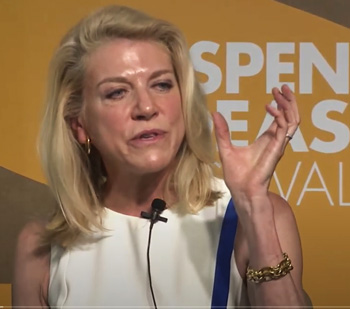 The well-known Rothschild family has been the puppet master of governments for centuries via their international banking empire; it has also long been
involved in Freemasonry, a fact that the official
Rothschild Archive in London reports. This is a topic into which this series does not intend to delve.
The well-known Rothschild family has been the puppet master of governments for centuries via their international banking empire; it has also long been
involved in Freemasonry, a fact that the official
Rothschild Archive in London reports. This is a topic into which this series does not intend to delve.
However, the mere fact of the Pope blessing an initiative of and entering into direct collaboration with a member of the Masonic-Jewish Rothschild family implies yet another reversal of the perennial and energetic condemnations of the Church against Masonry and Judaism.
This alone should raise the indignation of Catholics..
The Council & the Coalition
A further search into the Council reveals that it is actually the “blessed” version of another group called the Coalition for Inclusive Capitalism, which was founded in 2014 by the same Lynn Rothschild. When dealing with Pope Francis, the Coalition remodels itself and takes on the name of “Council,” taking on a “spiritual” sheen (the two websites are very similar, here and here). Their YouTube channel adopts the vague name of “Inclusive Capitalism” to encompass both the Coalition and the Council.
This series will refer to both groups as the CIC.
CIC’s driving principle: inequality is evil
Inclusive Capitalism has been given different names: Democratic Socialism, Social Capitalism and Common Good Capitalism.
According to Lynn Rothschild, “The movement toward Inclusive Capitalism is nothing less than a complete reform of the capital markets” (11:10 mark here). It is based on the revolutionary principle that inequality is evil and should be eliminated.
In Lynn Rothschild’s own words: “Since the Council for Inclusive Capitalism launched in 2020 ... our members are taking concrete, measurable actions to practice Capitalism in ways that meet the great inequality and climate challenges of our time [emphasis added].” (2)
Card. Turkson, who also leads the CIC, called inequality “harmful”. These are his words, from his address to the international conference “The Economy According to Pope Francis,” held at the Vatican on September 13, 2016:
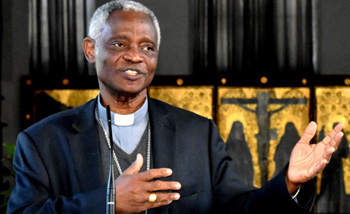 “Why is inequality so bad? Some economists argue that it is natural and healthy, the inevitable outcome of a competitive market economy. In recent years, however, there seems to be more and more evidence that excessive inequality is bad for economic growth, bad for economic opportunity, bad for financial stability, and bad for trust and social cohesion. I actually think there is even a deeper reason why inequality is harmful. Adam Smith might be most famous as the intellectual godfather of the free market, but he also had a profound insight that inequality undermines virtue because it leads people to admire wealth, prestige and privilege – and to disdain the poor [emphasis added].
“Why is inequality so bad? Some economists argue that it is natural and healthy, the inevitable outcome of a competitive market economy. In recent years, however, there seems to be more and more evidence that excessive inequality is bad for economic growth, bad for economic opportunity, bad for financial stability, and bad for trust and social cohesion. I actually think there is even a deeper reason why inequality is harmful. Adam Smith might be most famous as the intellectual godfather of the free market, but he also had a profound insight that inequality undermines virtue because it leads people to admire wealth, prestige and privilege – and to disdain the poor [emphasis added].
“Pope Francis connects these dots, tying together inequality, the economy of exclusion and the pathologies of the throwaway culture. Ultimately, he suggests that inequality spawns violence and destroys peace: ‘This is not the case simply because inequality provokes a violent reaction from those excluded from the system, but because the socio-economic system is unjust at its root,’ he says (EG 59). And inequality is the ‘root of social ills’ (EG 202). [emphasis added]”
It is beyond the scope of this series to go into a refutation of egalitarianism. Suffice it to say that TIA has already proven this principle wrong in other places, here, here, here and here.
Economic-scientific basis for the CIC
What is the economic-scientific inspiration behind this new “Inclusive Capitalism”? We find the answer in a CIC video conference with Lynn Rothschild, Card. Turkson and Oliver Bäte, who is the CEO of German international financial services provider Allianz-SE. He states at the 13:00 mark:
“We [Allianz] were founded in 1819 in Germany, and Germany adopted after the Second World War an economic concept that we actually call the social market economy, so it is exactly what the Pope talked about, it is already a reality. So we have a concept historically in Germany at the center of Europe, and I think that’s been spreading, that says Capitalism will only flourish if it benefits society ubiquitously, not just certain interest groups, and it is also empowering long term growth and success [emphasis added].”
It is not only Oliver Bate who equates Inclusive Capitalism with the social market economy. Henryk Borko, former rector of the Warsaw School of Economics - Poland’s premiere business school - explained in a short paper that the social market economy is Inclusive Capitalism (here, p. 6-7, 18-19):
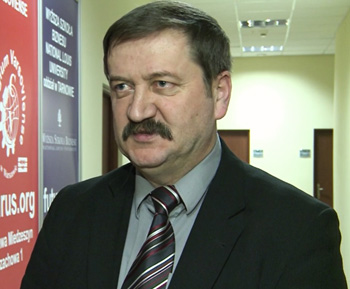 “Following the 2008 financial crisis experience, the world is likely to rely on a socially inclusive ordo-liberal concept of the social market economy model as a remedy... What does Inclusive Capitalism mean? Inclusive means common, available to anyone, without exclusion(s). Inclusiveness means including the excluded ones, as the more people are excluded, the greater the social disproportions are and the more capitalism acts against itself... A social market economy is, in fact, Inclusive Capitalism, which is meant to prevent social exclusion.”
“Following the 2008 financial crisis experience, the world is likely to rely on a socially inclusive ordo-liberal concept of the social market economy model as a remedy... What does Inclusive Capitalism mean? Inclusive means common, available to anyone, without exclusion(s). Inclusiveness means including the excluded ones, as the more people are excluded, the greater the social disproportions are and the more capitalism acts against itself... A social market economy is, in fact, Inclusive Capitalism, which is meant to prevent social exclusion.”
Card. Turkson, in the same 2016 address mentioned above, argues that the solution to the current economic crisis (and the solution that Pope Francis clamors for) is a solution based on the social market economy, which he uses interchangeably with the term “social economy”:
“[Rebuilding Europe after World War II] took heroic effort, and it brought out humanity’s best. We need that kind of heroic effort once again: to harness the virtues that propelled the original social market economy – but on a global scale. This includes coming to grips with climate change and achieving sustainable agriculture, plus efforts to make sure that all have access to food, healthcare, education, clean water, clean energy and communications. A 21st century social economy must not only prioritize solidarity and subsidiarity – but also human dignity, equality and sustainability [emphasis added].”
What is the social market economy? Considered a “third way” or “middle path” between Capitalism and Socialism (also called "third position" or moderate socialism, which was condemned by Pope Pius XI prior to Vatican II), the social market economy is a socialist solution for capitalists: it is a government-regulated free market inside a welfare state (which is based on the principles of equal opportunity and equal distribution of wealth). It was made popular in post-WWII Germany with the motto: “Prosperity for All, Property for Everyone.” It is founded on economic ordo-liberalism, which is at the opposite side of neo-liberalism. The social market economy also operates under different names: Rhine Capitalism, Market Socialism, Liberal Socialism, and Socialist Market Economy.
The CIC’s version of this social market economy is exactly what Pope Francis and Card. Turkson called for: the social market economy, but on a global scale.
A side note: This social market economy not only forms the basis for the economies of Germany, Austria, Czech Republic, Poland, the United Kingdom, the European Union (see its Title I Article III paragraph 3 here), and the “ sustainable development” so desired by the United Nations, but it also happens to be the economic model of communist China, which the latter has called the “socialist market economy” since the 1980s.
That should tell us everything: If communist China chose the social market economy, it is because the economic model perfectly aligns with the Communist Party’s goals. The only difference is that China has the “honesty” to call it “socialist.”
Socialism is condemned by the Church
Without entering deeply into a refutation of Socialism, I will simply recall here the words of the Archbishop Geraldo de Proença Sigaud, who was once a close ally of Prof. Plinio in the fight against the installation of Socialism in Brazil:
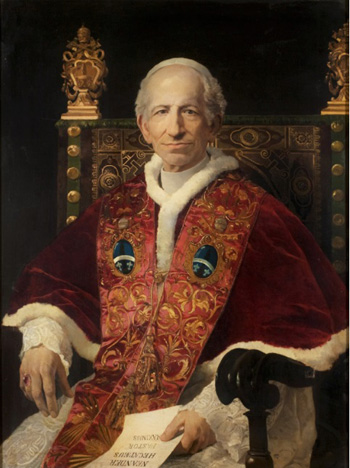 “Socialism teaches the same Marxist doctrine as Communism. It has the same objective, the Revolution, and wants the same economic organization of society. It is materialistic, rejects Religion, morals, law, God, the Church, the rights of the family and of the individual. It wants all the means of production to be in the hands of the State, as well as all education, transport and finance, and the State to be the sovereign master of all the forces of the nation. It wants the suppression of the difference between social classes. For Socialism, too, the person exists for the State, not the State for the person" (cf. Leo XIII, Encyclical Rerum novarum, Ed. Vozes, pp. 5-6).
“Socialism teaches the same Marxist doctrine as Communism. It has the same objective, the Revolution, and wants the same economic organization of society. It is materialistic, rejects Religion, morals, law, God, the Church, the rights of the family and of the individual. It wants all the means of production to be in the hands of the State, as well as all education, transport and finance, and the State to be the sovereign master of all the forces of the nation. It wants the suppression of the difference between social classes. For Socialism, too, the person exists for the State, not the State for the person" (cf. Leo XIII, Encyclical Rerum novarum, Ed. Vozes, pp. 5-6).
“The difference between socialists and communists is a difference in method. The communists want the immediate establishment of the dictatorship of the proletariat to carry out the Revolution. Socialists resort to ‘legal’ means to achieve the same goal. They resort to elections, legal strikes and bloodless agitation to get laws of nationalization and secular education. They make the nation slide towards Communism, usually without violent convulsions. Socialism is a ramp down which nations slide towards Communism almost without realizing it.
“The tactical advantage of Socialism for those who run the communist sect is that Socialism can take on softer colors. Communism is blood red. Socialism can go from red to pink. Communism has a hard time pretending to be Christian. Socialism finds ways to call itself Christian, and thus carry out the Revolution gradually and in stages.” (3)
Francis, the CIC & continuity with Benedict XVI
Some might say this initiative of Pope Francis is a new invention. Actually, it is not. Although he certainly has been working on this since the beginning of his pontificate, the plan also falls perfectly in line with Pope Benedict’s Encyclical Caritas in veritate, analyzed by Mr. Atila Guimarães here. He showed that in his encyclical Pope Benedict called for a global socialist state governed by an omnipotent international authority, something that the Council for Inclusive Capitalism also pretends to attain.
When considering all this, the words of Our Lady of Fatima come to mind: Russia will spread her errors throughout the world... who knew that it would be the Conciliar Popes who would place themselves at the service of global Communism?
The next article will expose the religious agenda of the Council for Inclusive Capitalism.
Continued

These words are by Prof. Plinio Corrêa de Oliveira, published in 1959 – over 60 years ago; yet they are still relevant when considering the Vatican’s latest and perhaps most important global, pan-religious & socio-economic initiative to date: the Council for Inclusive Capitalism.
In November 2019, a mere month before Covid broke out of the laboratory in Wuhan and the world and the Church were subjected to Hygiene Socialism, Pope Francis met with the Council for Inclusive Capitalism, a global coalition of multi-national corporations whose goal is to implement “Inclusive Capitalism.”
The group was officially launched on December 8, 2020 under the auspices of Pope Francis. Upon welcoming this group, Francis has taken on the role of “chaplain,” with the assistance of Card. Peter Turkson, Prefect of the Vatican’s Dicastery for Promoting Integral Human Development.

Francis meets with those who formed the Council for Inclusive Capitalism
This series is meant to show why this Council is important and why Catholics should be extremely concerned that the Vatican is blessing this initiative, one that seems to have gone mostly unnoticed. The series will give an in-depth look at the Council: its background, its founding principles and how they conflict with Catholic doctrine, as well as its terminology, goals and means of achieving them, and its latest activity.
This first article will give some background on the Council, the revolutionary philosophy behind it and demonstrate how it is incompatible with the Faith.
The Council, led by Lynn Rothschild
The Council was founded by Lady Lynn Forester de Rothschild, wife of Sir Evelyn Robert de Rothschild (both on their third marriage). Lynn Rothschild is an American investor and head of several multi-national companies. She is also a member of the American Masonic Council on Foreign Relations, which publishes the important magazine called Foreign Affairs.

Lynn Rothschild
However, the mere fact of the Pope blessing an initiative of and entering into direct collaboration with a member of the Masonic-Jewish Rothschild family implies yet another reversal of the perennial and energetic condemnations of the Church against Masonry and Judaism.
This alone should raise the indignation of Catholics..
The Council & the Coalition
A further search into the Council reveals that it is actually the “blessed” version of another group called the Coalition for Inclusive Capitalism, which was founded in 2014 by the same Lynn Rothschild. When dealing with Pope Francis, the Coalition remodels itself and takes on the name of “Council,” taking on a “spiritual” sheen (the two websites are very similar, here and here). Their YouTube channel adopts the vague name of “Inclusive Capitalism” to encompass both the Coalition and the Council.
This series will refer to both groups as the CIC.
CIC’s driving principle: inequality is evil
Inclusive Capitalism has been given different names: Democratic Socialism, Social Capitalism and Common Good Capitalism.
According to Lynn Rothschild, “The movement toward Inclusive Capitalism is nothing less than a complete reform of the capital markets” (11:10 mark here). It is based on the revolutionary principle that inequality is evil and should be eliminated.
In Lynn Rothschild’s own words: “Since the Council for Inclusive Capitalism launched in 2020 ... our members are taking concrete, measurable actions to practice Capitalism in ways that meet the great inequality and climate challenges of our time [emphasis added].” (2)
Card. Turkson, who also leads the CIC, called inequality “harmful”. These are his words, from his address to the international conference “The Economy According to Pope Francis,” held at the Vatican on September 13, 2016:

Card. Peter Turkson
“Pope Francis connects these dots, tying together inequality, the economy of exclusion and the pathologies of the throwaway culture. Ultimately, he suggests that inequality spawns violence and destroys peace: ‘This is not the case simply because inequality provokes a violent reaction from those excluded from the system, but because the socio-economic system is unjust at its root,’ he says (EG 59). And inequality is the ‘root of social ills’ (EG 202). [emphasis added]”
It is beyond the scope of this series to go into a refutation of egalitarianism. Suffice it to say that TIA has already proven this principle wrong in other places, here, here, here and here.
Economic-scientific basis for the CIC
What is the economic-scientific inspiration behind this new “Inclusive Capitalism”? We find the answer in a CIC video conference with Lynn Rothschild, Card. Turkson and Oliver Bäte, who is the CEO of German international financial services provider Allianz-SE. He states at the 13:00 mark:
“We [Allianz] were founded in 1819 in Germany, and Germany adopted after the Second World War an economic concept that we actually call the social market economy, so it is exactly what the Pope talked about, it is already a reality. So we have a concept historically in Germany at the center of Europe, and I think that’s been spreading, that says Capitalism will only flourish if it benefits society ubiquitously, not just certain interest groups, and it is also empowering long term growth and success [emphasis added].”
It is not only Oliver Bate who equates Inclusive Capitalism with the social market economy. Henryk Borko, former rector of the Warsaw School of Economics - Poland’s premiere business school - explained in a short paper that the social market economy is Inclusive Capitalism (here, p. 6-7, 18-19):

Prof. Henryk Borgo
Card. Turkson, in the same 2016 address mentioned above, argues that the solution to the current economic crisis (and the solution that Pope Francis clamors for) is a solution based on the social market economy, which he uses interchangeably with the term “social economy”:
“[Rebuilding Europe after World War II] took heroic effort, and it brought out humanity’s best. We need that kind of heroic effort once again: to harness the virtues that propelled the original social market economy – but on a global scale. This includes coming to grips with climate change and achieving sustainable agriculture, plus efforts to make sure that all have access to food, healthcare, education, clean water, clean energy and communications. A 21st century social economy must not only prioritize solidarity and subsidiarity – but also human dignity, equality and sustainability [emphasis added].”
What is the social market economy? Considered a “third way” or “middle path” between Capitalism and Socialism (also called "third position" or moderate socialism, which was condemned by Pope Pius XI prior to Vatican II), the social market economy is a socialist solution for capitalists: it is a government-regulated free market inside a welfare state (which is based on the principles of equal opportunity and equal distribution of wealth). It was made popular in post-WWII Germany with the motto: “Prosperity for All, Property for Everyone.” It is founded on economic ordo-liberalism, which is at the opposite side of neo-liberalism. The social market economy also operates under different names: Rhine Capitalism, Market Socialism, Liberal Socialism, and Socialist Market Economy.
The CIC’s version of this social market economy is exactly what Pope Francis and Card. Turkson called for: the social market economy, but on a global scale.
A side note: This social market economy not only forms the basis for the economies of Germany, Austria, Czech Republic, Poland, the United Kingdom, the European Union (see its Title I Article III paragraph 3 here), and the “ sustainable development” so desired by the United Nations, but it also happens to be the economic model of communist China, which the latter has called the “socialist market economy” since the 1980s.
That should tell us everything: If communist China chose the social market economy, it is because the economic model perfectly aligns with the Communist Party’s goals. The only difference is that China has the “honesty” to call it “socialist.”
Socialism is condemned by the Church
Without entering deeply into a refutation of Socialism, I will simply recall here the words of the Archbishop Geraldo de Proença Sigaud, who was once a close ally of Prof. Plinio in the fight against the installation of Socialism in Brazil:

Leo XIII: In Socialism the person exists for the State, not the State for the person
“The difference between socialists and communists is a difference in method. The communists want the immediate establishment of the dictatorship of the proletariat to carry out the Revolution. Socialists resort to ‘legal’ means to achieve the same goal. They resort to elections, legal strikes and bloodless agitation to get laws of nationalization and secular education. They make the nation slide towards Communism, usually without violent convulsions. Socialism is a ramp down which nations slide towards Communism almost without realizing it.
“The tactical advantage of Socialism for those who run the communist sect is that Socialism can take on softer colors. Communism is blood red. Socialism can go from red to pink. Communism has a hard time pretending to be Christian. Socialism finds ways to call itself Christian, and thus carry out the Revolution gradually and in stages.” (3)
Francis, the CIC & continuity with Benedict XVI
Some might say this initiative of Pope Francis is a new invention. Actually, it is not. Although he certainly has been working on this since the beginning of his pontificate, the plan also falls perfectly in line with Pope Benedict’s Encyclical Caritas in veritate, analyzed by Mr. Atila Guimarães here. He showed that in his encyclical Pope Benedict called for a global socialist state governed by an omnipotent international authority, something that the Council for Inclusive Capitalism also pretends to attain.
When considering all this, the words of Our Lady of Fatima come to mind: Russia will spread her errors throughout the world... who knew that it would be the Conciliar Popes who would place themselves at the service of global Communism?
The next article will expose the religious agenda of the Council for Inclusive Capitalism.
- Plinio Corrêa de Oliveira, Revolution and Counter-Revolution, Spring Grove, Pennsylvania: American Society for the Defense of Tradition, Family and Property, 2014, p. 66.
- CIC’s September magazine issue, p. 7, paragraph 6.
- From his Pastoral Letter on the Communist Sect, Part II, Chapter IV.
Continued

Posted November 18, 2022
______________________
______________________
 Volume I |
 Volume II |
 Volume III |
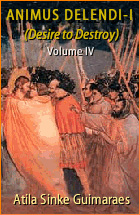 Volume IV |
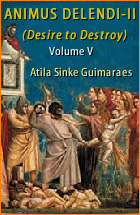 Volume V |
 Volume VI |
 Volume VII |
 Volume VIII |
 Volume IX |
 Volume X |
 Volume XI |
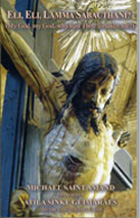 Special Edition |


